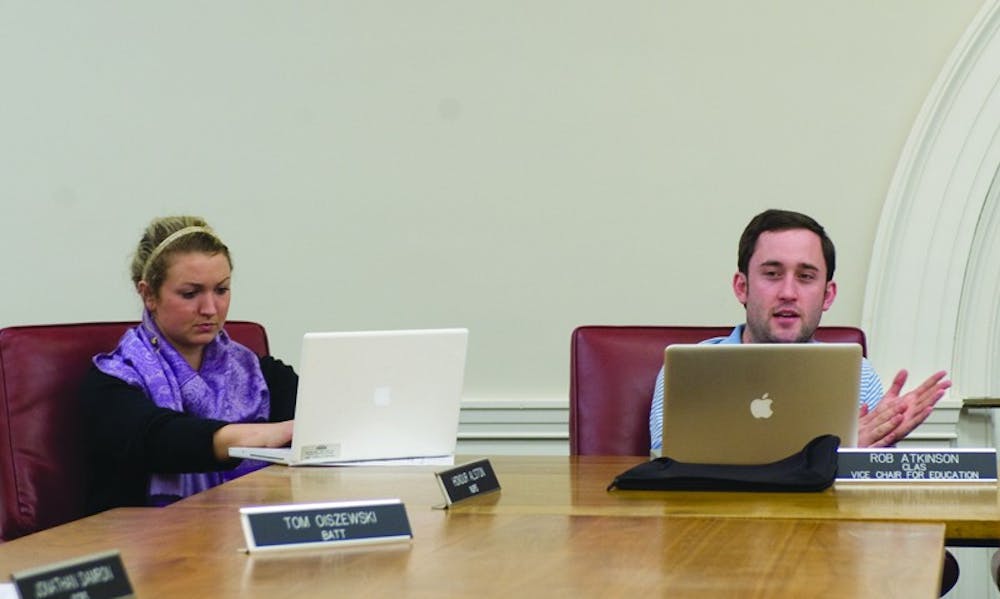It may be common for students to talk about tests they have taken, but could this activity fall under a moral gray area in the honor code?
This topic was discussed at length at the Honor Committee's meeting last night, during which Commerce School representative Andy Bean recounted one professor's experience with the issue.
In 2008, this professor administered a test that included 15 questions from the midterm previously given. The same test was given two days in a row to different sections, but the scores on the second day were significantly higher, Bean said.
"Exactly what happened is hard to define, but the significant difference in scores suggests there was a problem," he said.
Comments such as, "I wish I had reviewed the concepts from the midterm," or, "That test was so detailed!" can spread quickly and raise the scores for students who take the same test in a later session, Bean said.
"I don't think it's malicious, or people are intending to commit an honor offense," he said "It's an awareness issue - students don't realize they are giving an advantage to another student."
Committee Chair David Truetzel said, though, that it is an inexcusable honor offense to discuss exam content at all if the professor has explicitly forbidden it.
"Students should be aware that when a professor declares, 'Do not discuss this exam with anyone,' this [statement] means all forums of discussion - which includes whether or not the exam is hard," he said, adding that students should be aware that other individuals could gain an unfair advantage simply by overhearing information.
Committee members, therefore, said students must counteract the existing culture of talking about tests after the fact. This culture can be especially disadvantageous to professors teaching large lecture classes with hundreds of students, in which those students are more anonymous and might not feel personally accountable to the professor or peers.
Law School representative Charlie Harris suggested that the University as a whole should follow the Law School's example by requiring exams to have cover letters that explicitly state what is expected of students.
"It builds a consensus of what is acceptable and what is not," he said.
Graduate Arts & Sciences representative Alexander Cohen, a former Cavalier Daily columnist, supported this idea.
"It does fall on the professor to say, 'These are my expectations;' Otherwise, it can't be expected for people to act in a way they didn't know they were supposed to," he said.
Nevertheless, other Committee members said educating students about the honor system is more important than changing test policy.
"What we need to be focusing on is how we can change the culture of students discussing what is on exams," Bean said. "Our job is to make clear what the rules are and to make it known that it's not okay to talk about exams when the test is over"







